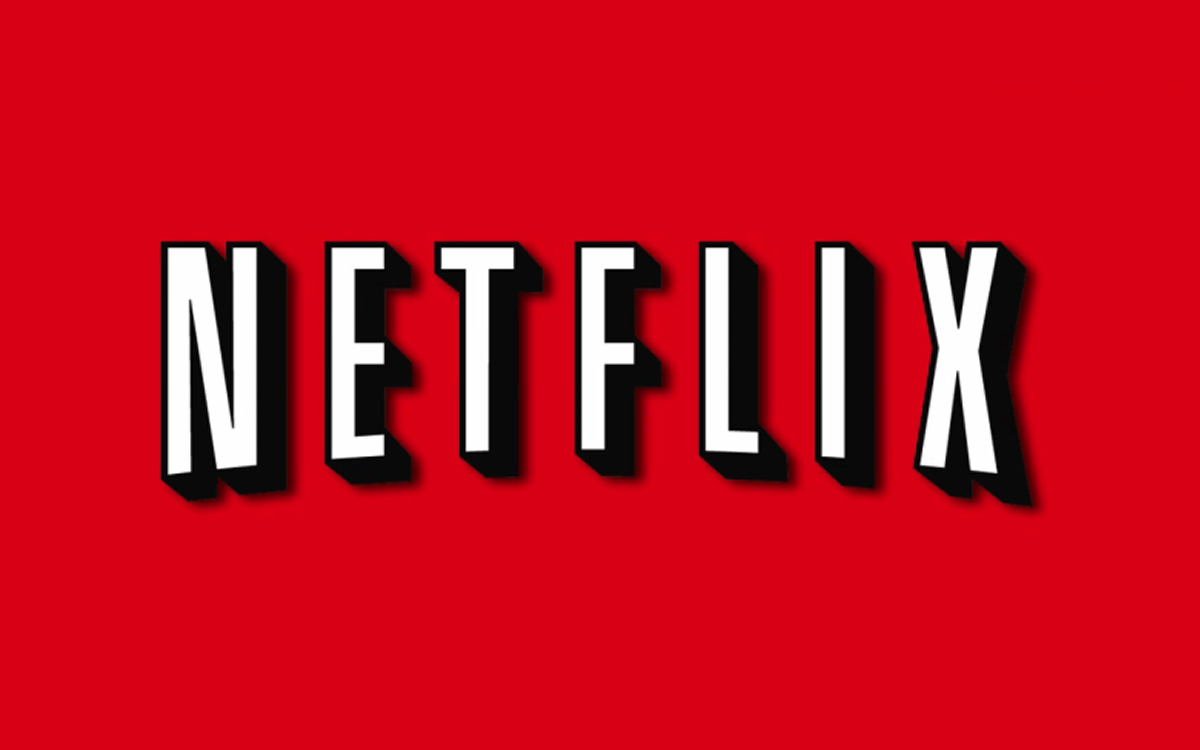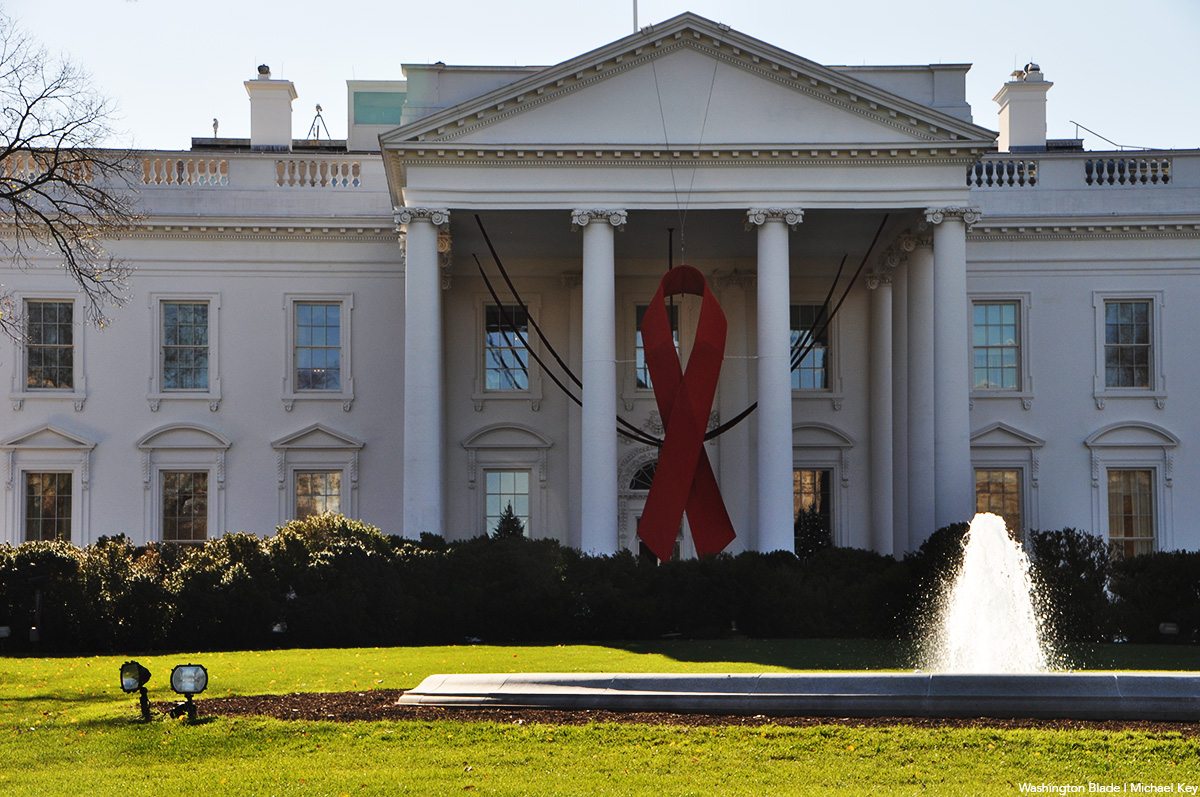Africa
Netflix stops streaming LGBTQ-specific movies in Kenya
Company signed agreement with country’s government

Kenya and Netflix Africa have signed an agreement that ends the streaming of LGBTQ-specific movies in compliance with the country’s laws.
The agreement allowing Netflix to self-classify movies streamed in Kenya by restricting the LGBTQ-specific content was officially signed in February this year after talks that began in October 2021.
An official at Kenya’s film regulator, the Kenya Film Classification Board, told Washington Blade that Netflix has already paid for a films distribution license within the country and it is currently under processing.
“After signing the agreement, they (Netflix) are already developing a classification system that is aligned with the local classification standards so that every film on Netflix will be Kenyan ratings once it is in place,” the official said.
The Kenya Film Classification Board considers LGBTQ-specific content under the “restricted category” that is not allowed for broadcast, exhibition and distribution to the public because it glorifies, normalizes, promotes and propagates homosexuality against the law.
“The developed system must be brought to KFCB to confirm whether it generates results that are aligned with our local classification system before the board adopts the ratings,” the official stated.
The official noted the board’s technical staff is ready to offer any assistance to Netflix personnel in developing the system.
Kenya does not recognize consensual same-sex relations and they are criminalized under Section 165 of the Penal Code.
Parliament in March approved a resolution banning public discussions of LGBTQ-specific issues, including in the media. The Family Protection Bill, 2023 would impose the death penalty on LGBTQ people and criminalizes the so-called promotion of LGBTQ practices in the country.
The KFCB derives powers from the Films and Stage Act to regulate the exhibition, distribution, possession, or broadcasting of content to the public.
“Basically, we were given authority by the government to introduce classification for broadcasters, video-on-demand and over-the-top media services,” the official said.
Live programming and news, however, are exempted from the board’s content classification.
The rapid growth in digital technology has also prompted the board to reconsider effective ways of classifying and regulating films streamed on numerous digital platforms like video-on-demand services.
There is, for example, a proposed law dubbed Kenya Film Bill that seeks to empower the KFCB in its film classification and regulation duties in this digital era.
The proposal would recognize the board’s key roles of regulating the creation, broadcasting, distribution, possession, and exhibition of films through the issuance of licenses to filmmakers, distributors and exhibitors. It would also affirm the KFCB’s mandate in classifying films under different categories, such as films that are either restricted or prohibited in Kenya.
The board is also targeting other video-on-demand streaming platforms in restricting LGBTQ-specific content in Kenya apart from reaching a deal with Netflix.
“We have already initiated talks with Showmax and the local Safaricom and Viusasa platforms with such video-on-demand services, among other platforms considered as distributors of this streaming content,” the KFCB official said.
The board’s push for the streaming platforms to self-classify movies in line with Kenyan laws makes it easy for its officials to monitor compliance.
Kenya and Egypt have the highest number of Netflix subscriptions in Africa.
Egypt’s media regulator in September 2022 had warned the streaming platform and Disney+ against broadcasting LGBTQ-specific such content as it breached its “societal values.”
Uganda is the latest African country to join Egypt and Kenya in banning the broadcasting of LGBTQ-specific content after the signing of the Anti-Homosexuality Act with a death penalty provision for “aggravated homosexuality.”
This prompted DStv-Uganda owned by South Africa’s MultiChoice Company to stop airing movies with LGBTQ-specific content in compliance with the new law.
Broadcasting or showcasing LGBTQ-specific movies in Kenya by filmmakers has on several occasions put them at loggerheads with the KFCB.
The board in September 2021 banned a gay documentary, “I Am Samuel,” that a local filmmaker produced. The KFCB termed it “blasphemous” because it promoted “values that are in dissonance with our constitution, culture, values, and norms.”
The documentary, nevertheless, has been screened at more than 25 film festivals around the world and streamed on iTunes, Vimeo and other international platforms.
The government’s move to ban the documentary attracted criticism from filmmakers and rights groups who termed the decision as an abuse of the freedom of expression that the Kenyan Constitution guarantees. Kenyan courts dismissed their petition that challenged the ban.
Apart from Netflix and the Kenya Film Classification Board signing an agreement restricting the streaming of LGBTQ-specific movies within Kenya, the two parties have also been engaging to ensure children in the country are not exposed to harmful content online.
Uganda
LGBTQ Ugandans targeted ahead of country’s elections
President Yoweri Museveni won 7th term in disputed Jan. 15 vote

Barely a week after Ugandan President Yoweri Museveni secured a 7th term in an election marred by state violence, intimidation, and allegations of fraud, the country’s queer community spoke about how the election environment impacted it.
The LGBTQ lobby groups who spoke with the Washington Blade noted that, besides government institutions’ failure to create a safe and inclusive environment for civic participation by all Ugandans, authorities weaponized the Anti-Homosexuality Act to silence dissent and discourage queer voter engagement.
The rights groups note that candidates aligned with Museveni’s ruling National Resistance Movement — including Parliament Speaker Anita Among — during the campaigns accused their rivals of “promoting homosexuality” to discredit them while wooing conservative voters.
Queer people and LGBTQ rights organizations as a result were largely excluded from the formal political processes for the election as voters, mobilizers, or civic actors due to fear of exposure, stigma, violence, and legal reprisals.
“This homophobic rhetoric fueled public hostility and emboldened vigilante violence, forcing many queer Ugandans into deeper hiding during the election period,” Uganda Minority Shelters Consortium Coordinator John Grace stated.
Some queer people had expressed an interest in running for local council seats, but none of them formally registered as candidates or campaigned openly because of safety concerns and local electoral bodies’ discriminatory vetting of candidates.
“UMSC documented at least three incidents of election-related violence or intimidation targeting LGBTQ+ individuals and activists,” Grace noted. “These included harassment, arbitrary detentions, extortions by state and non-state actors, digital cat-fishing, and threats of outing.”
Amid such a militarized and repressive election environment, Let’s Walk Uganda Executive Director Edward Mutebi noted queer-led and allied organizations engaged in the election process through restricted informal voter education, community discussions, and documenting human rights violations.
“Fear of backlash limited visibility and direct participation throughout the election cycle,” Mutebi said. “But despite the hostile environment of work, Let’s Walk Uganda was able to organize a successful transgender and gender diverse youth training on electoral security and safety.”
Museveni’s government escalated its repressive actions during the Jan. 15 elections by shutting down the internet and suspending nine civil society organizations, including Chapter Four Uganda and the National Coalition of Human Rights Defenders, for allegedly engaging in activities that are prejudicial to the security and laws of the country.
The suspension of the rights organizations remains in force, an action both Mutebi and Grace condemn. They say it prevents queer Ugandans from accessing urgent services from the affected groups.
“For the LGBTQ community, the impact has been immediate and deeply harmful. Many of the suspended organizations, like Chapter Four Uganda, were critical partners in providing legal representation, emergency response, and documentation of rights violations,” Grace said.
This has compelled UMSC and its other partners to handle increased caseloads with limited resources, while navigating heightened scrutiny and operational risk.
“The suspension has disrupted referral pathways, delayed urgent interventions, and weakened collective advocacy for marginalized groups and minority rights defenders, which calls for urgent international solidarity, flexible funding, and protection mechanisms to safeguard the work of grassroots organizations operating under threat,” Grace stated.
Mutebi warned that such repressive actions are tyrannical and are indicative of shrinking civic space, which undermines democratic accountability as the promotion and protection of human rights is ignored.
With Museveni, 81, extending his tenure at State House from a landslide win of 72 percent, UMSC and LWU consider a bleak future in the protection of rights for queer Ugandans and other minority groups.
“Without significant political and legal shifts, LGBTQ persons will face continued criminalization, reduced civic space, and heightened insecurity, making sustained advocacy and international solidarity more critical than ever,” Mutebi said. “ It is unimaginable how it feels to live in a country with no hope.”
Grace, however, affirmed the resistance by local queer lobby groups will continue through underground networks, regional solidarity, and digital organizing.
The duo noted that a win by Museveni’s main challenger and rapper, Bobi Wine, who only managed 24 percent of the total votes cast, could have enabled the opening up of civil space and human rights protections in Uganda.
Wine, for his part, spoke in favor of the respect for the rule of law and human rights during his campaign.
“While Bobi Wine’s past stance on LGBTQ rights was inconsistent, his recent shift toward more inclusive rhetoric and international engagement suggested a potential opening for dialogue,” Grace said. “A win might have created space for policy reform or at least reduced state-sponsored homophobia, though structural change would still require sustained pressure and coalition-building.”
Mutebi stated that a change in Uganda’s leadership to a youthful leader like Wine could have offered an opening, but not a guarantee for progress on inclusion and human rights. Mutebi added existing institutionalized and societal homophobia remain in place.
Egypt
Iran, Egypt object to playing in Seattle World Cup ‘Pride Match’
Game to take place on June 26

Iran and Egypt have objected to playing in a “Pride Match” that will take place in Seattle during the 2026 World Cup.
The Egyptian Football Association on Tuesday said it told FIFA Secretary General Mattias Grafström in a letter that “it categorically rejects holding any activities related to supporting (homosexuality) during the match between the Egyptian national team and Iran, scheduled to be held in Seattle, USA, on June 26, 2026, in the third round of the group stage of the 2026 World Cup.” Football Federation Islamic Republic of Iran President Mehdi Taj told ISNA, a semi-official Iranian news agency that both his country and Egypt “protested this issue.”
The 2026 World Cup will take place in the U.S., Canada, and Mexico. The draw took place at the Kennedy Center on Dec. 5.
Iran is among the handful of countries in which consensual same-sex sexual relations remain punishable by death.
The State Department’s 2023 human rights report notes that while Egyptian law “did not explicitly criminalize consensual same-sex sexual activity, authorities regularly arrested and prosecuted LGBTQI+ persons on charges including ‘debauchery,’ prostitution, and ‘violating family values.’” Egyptian authorities “also reportedly prosecuted LGBTQI+ individuals for ‘misuse of social media.’”
“This resulted in de facto criminalization of same-sex conduct and identity,” notes the report.
The 2024 human rights report the State Department released earlier this year did not include LGBTQ-specific references.
Soccer has ‘unique power to unite people across borders, cultures, and beliefs’
The June 26 match between Iran and Egypt coincides with Seattle Pride. The Washington Post reported the Seattle FIFA World Cup 2026 Local Organizing Committee decided to hold the “Pride Match” before last week’s draw.
“As the Local Organizing Committee, SeattleFWC26’s role is to prepare our city to host the matches and manage the city experience outside of Seattle Stadium,” said SeattleFWC26 Vice President of Communications Hana Tadesse in a statement the committee sent to the Washington Blade on Wednesday. “SeattleFWC26 is moving forward as planned with our community programming outside the stadium during Pride weekend and throughout the tournament, partnering with LGBTQ+ leaders, artists, and business owners to elevate existing Pride celebrations across Washington.”
“Football has a unique power to unite people across borders, cultures, and beliefs,” added Tadeese. “The Pacific Northwest is home to one of the nation’s largest Iranian-American communities, a thriving Egyptian diaspora, and rich communities representing all nations we’re hosting in Seattle. We’re committed to ensuring all residents and visitors experience the warmth, respect, and dignity that defines our region.”
The 2034 World Cup will take place in Saudi Arabia.
Consensual same-sex sexual relations remain punishable by death in the country. The 2022 World Cup took place in neighboring Qatar, despite concerns over the country’s anti-LGBTQ rights record.
Eswatini
PEPFAR delivers first doses of groundbreaking HIV prevention drug to two African countries
Lenacapavir now available in Eswatini and Zambia.

The State Department on Tuesday announced PEPFAR has delivered the first doses of a groundbreaking HIV prevention drug to two African countries.
The lenacapavir doses arrived in Eswatini and Zambia.
The State Department in September unveiled an initiative with Gilead Sciences to bring lenacapavir “to market in high-burden HIV countries.”
Lenacapavir users inject the drug twice a year.
The State Department in its September announcement noted everyone who participated in Gilead’s clinical trials remained HIV negative. It also said lenacapavir “has the potential to be particularly helpful for pregnant and breastfeeding mothers, as it safely protects them during and after pregnancy to prevent mother-to-child transmission.”
“In our new America First Global Health Strategy, the Department of State is establishing a first-of-its-kind innovation fund to support American-led research, market-shaping, and other dynamic advancements in global health,” said PEPFAR on Tuesday in a press release.
“The arrivals of the first doses of lenacapavir in Eswatini and Zambia mark an important milestone in HIV prevention and reflect our commitment to supporting communities with the greatest need,” added Gilead CEO Daniel O’Day. “For the first time, a new HIV medicine is reaching communities in sub-Saharan Africa in the same year as its U.S. approval.”
The September announcement came against the backdrop of widespread criticism over the Trump-Vance administration’s reported plans to not fully fund PEPFAR and to cut domestic HIV/AIDS funding. The Washington Blade has previously reported PEPFAR-funded programs in Kenya and other African countries have been forced to curtail services or even close because of U.S. funding cuts.
-

 Federal Government5 days ago
Federal Government5 days agoTop Democrats reintroduce bill to investigate discrimination against LGBTQ military members
-

 Virginia5 days ago
Virginia5 days agoFrom the Pentagon to politics, Bree Fram fighting for LGBTQ rights
-

 Iran4 days ago
Iran4 days agoTwo gay men face deportation to Iran
-

 Commentary4 days ago
Commentary4 days agoDefunding LGBTQ groups is a warning sign for democracy




















